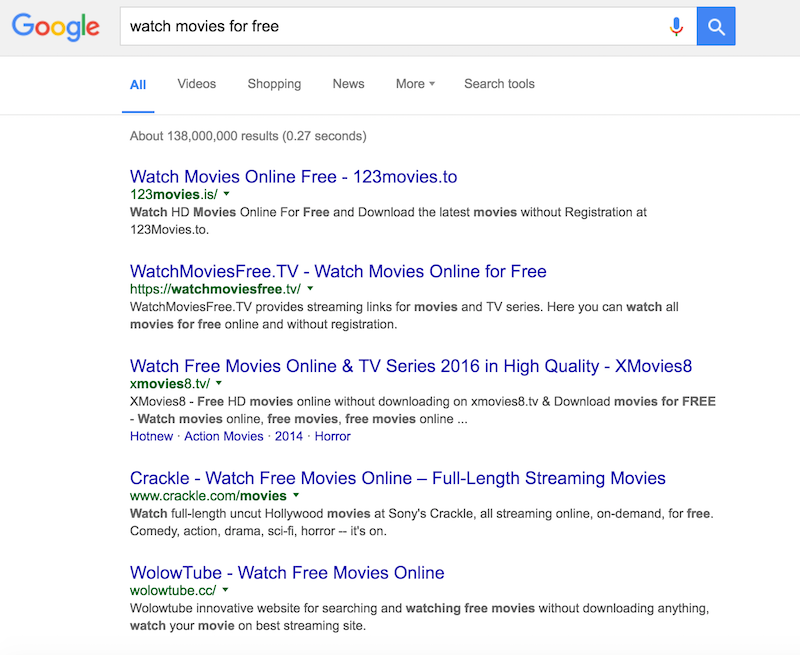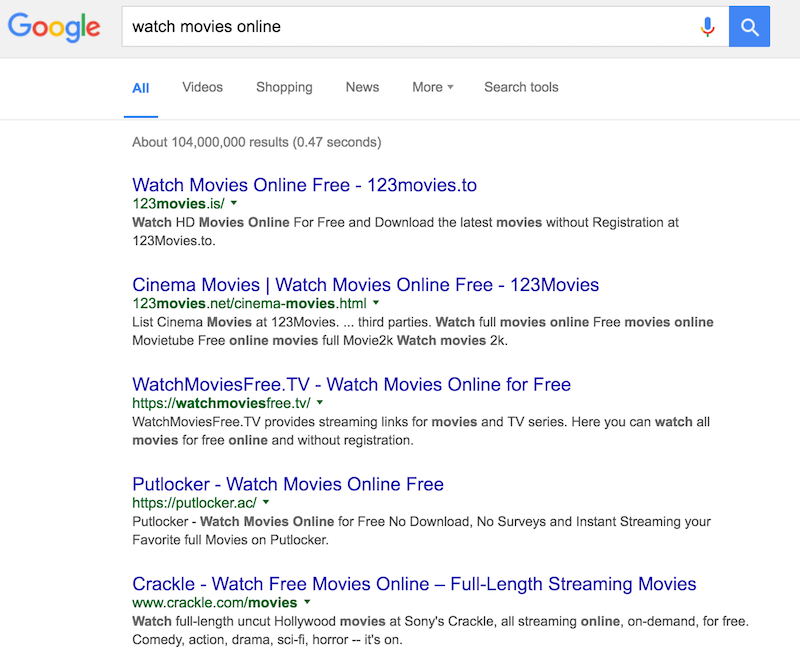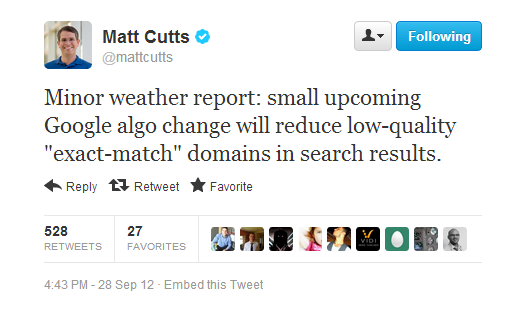In which we describe what an exact match domain (EMD) looks like, how they can manipulate search rankings and why it might be best to avoid them.
What is an exact match domain (EMD)?
An EMD is a domain name that precisely matches a search query that will likely drive traffic to your website. For instance, if you call your website BuyCheapJeansOnline.com.
The search query ‘buy cheap jeans’ is a lucrative search term, and if you call your website this then you might assume this is a short cut to the top of a search engine results page (SERP).
But as you’ll learn, even if this works in the short term, you may want to avoid doing it.
What’s the problem with EMDs?
First of all, it could be considered a sign of a spammy website if its URL exactly matches a search term. Just think of all those ‘watch movies for free’ websites that proliferate SERPs when you search for that phrase.

Even if you remove the word ‘free’ and search for ‘watch movies online’, the SERP is a wild west town full of unsavoury characters.

You have to scroll halfway down the page before you get to legitimate streaming companies like Crackle or Hulu. And Netflix barely makes a dent.
Most domains from legitimate companies will take its name from the brand name itself, with perhaps a single keyword they may hope to rank for. As long as its in the brand name. To use Graham Charlton’s example: glassesdirect.com.
EMDs have been long thought of as having an unfair advantage.
As opposed to websites that rise to the top of Google through quality content, solid architecture, trusted backlinks and assorted other white hat best practices, Exact Match Domains can just rise to the top by shoe-horning in a few tasty keywords.
Bill Slawski wrote in 2011:
“A company may attempt to “trick” the search engine into listing the company’s website more highly. For example, if the search engine gives greater weight in ranking results to words used in the domain name associated with websites, a company may attempt to trick the search engine into ranking the company’s listing more highly by including desirable search terms in the domain name associated with the company’s listing.”
It’s basically unfair to the legitimate companies, and risky for the user.
A paid-for film streaming service offering the best possible user experience and security is surely preferable to one that will download malware to your hard-drive and take you through all sorts of unsavoury black hat practices.
But as you can see from the examples above, Google hasn’t quite got it right just yet.
What is Google doing about EMDs?
In 2012, Google’s then Head of Webspam Matt Cutts announced an algorithm change meant to reduce the amount of low quality exact match domains in search results.

Cutts also tweeted, “New exact-match domain (EMD) algo affects 0.6% of English-US queries to a noticeable degree. Unrelated to Panda/Penguin.”
However things went a bit quiet on the EMD front post 2012, until this past weekend when Search Engine Roundtable reported a few interesting tweets sent Google’s Gary Illyes on Friday.
It seems Illyes is on the hunt for spammy EMDs once again…
@gfiorelli1 @pedrodias @aleyda @pelogia It’s funny you say that! I was hunting for (bad) EMDs for the past two weeks without much luck :)— Gary Illyes ᕕ( ᐛ )ᕗ (@methode) November 25, 2016
And is asking for assistance too…
How do I stay on the right side of Google?
There are plenty of examples of EMDs that manage to stay high on the SERPs without fear of penalty – cheapflights.com being one of the more high profile examples.
It does this by being a legitimate non-spammy operation.
And that’s really all you need to worry about. As Illyes also stated on Friday…
@gfiorelli1 @aleyda @pelogia I'm not an expert on spam, but at least the sites I looked at didn't do anything utterly fishy 1/2
@gfiorelli1 @aleyda @pelogia there is no inherent problem with EMDs. The problem is when it's combined with other spam tactics
If you’re a low quality site, with an EMD and you’re engaging in spammy tactics – then you should definitely worry.
If you’re a solid, genuine business that just happens to have a brand name that also looks like an exact match domain, but is otherwise a bastion of trustworthy internet practices – then you should be fine.


 -
- 
No comments:
Post a Comment